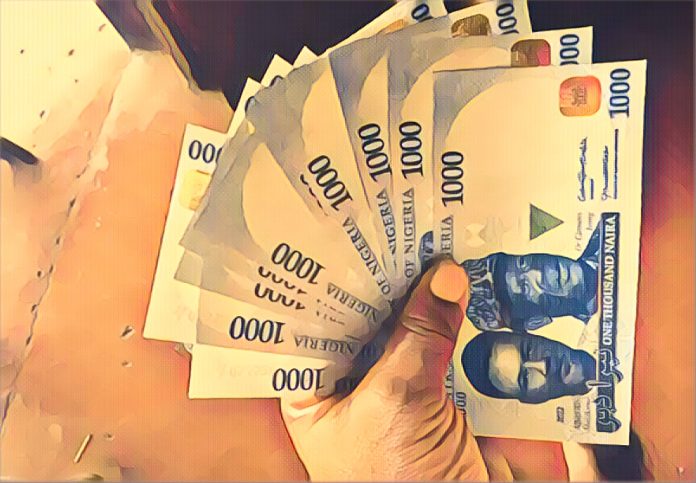In an unexpected turn, the Nigerian naira has seen a significant recovery against the United States dollar, marking a promising trend in the country’s financial landscape. Closing at an impressive N1,382/$ on the official NAFEM window from a previous rate of N1,598/$1 at the week’s start, this improvement reflects a broader economic optimism under President Bola Tinubu’s leadership. The parallel market too recorded a notable improvement, with the Naira strengthening to N1,470/$1 from N1,600/$1.
President Tinubu, seizing the moment, has called on Nigerians to support the burgeoning economic recovery by choosing locally-made goods and services. This patriotic appeal aims to sustain the Naira’s positive trajectory in the foreign exchange market, reinforcing the administration’s efforts to bolster the national economy through indigenous patronage.
The Naira’s resurgence is particularly notable considering its previous decline following the government’s decision to allow the currency to float freely in an attempt to eliminate currency arbitrage. This bold strategy seems to be bearing fruit, as evidenced by the currency’s recent performance, underscoring the government’s dedication to stabilizing and strengthening the nation’s financial foundation.
President Tinubu, while appreciating the progress, remains cautious, emphasizing the necessity for continued diligence to maintain and build upon these economic gains. He has encouraged citizens to be vigilant against currency manipulation, urging them to report any suspicious activities that could undermine the naira’s stability.
A series of strategic interventions have been credited for this turnaround, including a crackdown on illicit cryptocurrency trading platforms and manipulative practices within the foreign exchange parallel market. These measures have showcased the administration’s commitment to restoring confidence in the naira and ensuring its robust performance against global currencies.
To further solidify these efforts, the President has advocated for an increased focus on “Made in Nigeria” products, highlighting the critical role of domestic consumption in achieving a strong and resilient currency. This call to action not only aims to enhance the Naira’s value but also to empower Nigerian workers, particularly in light of the impending new minimum wage implementation.
The federal government’s proactive stance extends to fiscal prudence, as demonstrated by a recent travel ban for government officials funded by public money. This measure is expected to save billions of naira, reflecting the administration’s broader strategy to streamline government expenditure and redirect resources towards pivotal economic sectors.
Furthermore, the government has initiated several programs to alleviate the economic challenges faced by Nigerians. These include conditional grants for over one million businesses, low-interest loans for small and medium enterprises, and substantial support for large-scale manufacturers. These initiatives are part of a comprehensive approach to stimulate economic activity, job creation, and sustainable growth.
Analysts attribute the Naira’s gains to a combination of factors, including the Central Bank of Nigeria’s (CBN) effective policy interventions, favorable oil prices, and increased crude oil production. The resumption of foreign exchange sales to qualified Bureau de Change operators has also been highlighted as a pivotal factor in improving market liquidity and curbing speculative activities.
As the Naira continues its upward trend, there’s cautious optimism among financial experts and government officials alike. The sustainability of this recovery hinges on continued strategic efforts and the collective resolve of Nigerians to support indigenous products and services. With the government’s multifaceted approach to economic revitalization, the future looks promising for the Naira and, by extension, the Nigerian economy.



